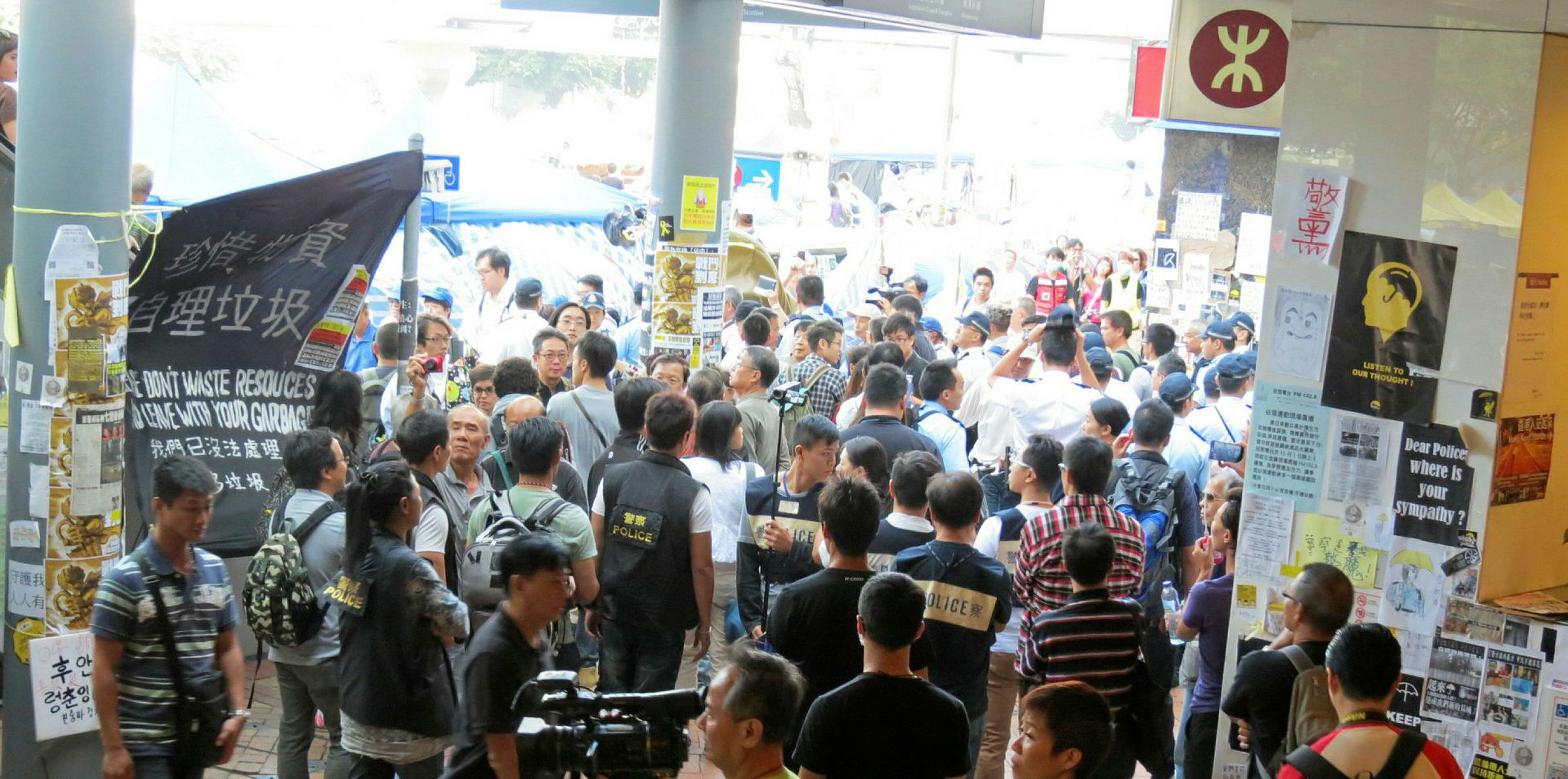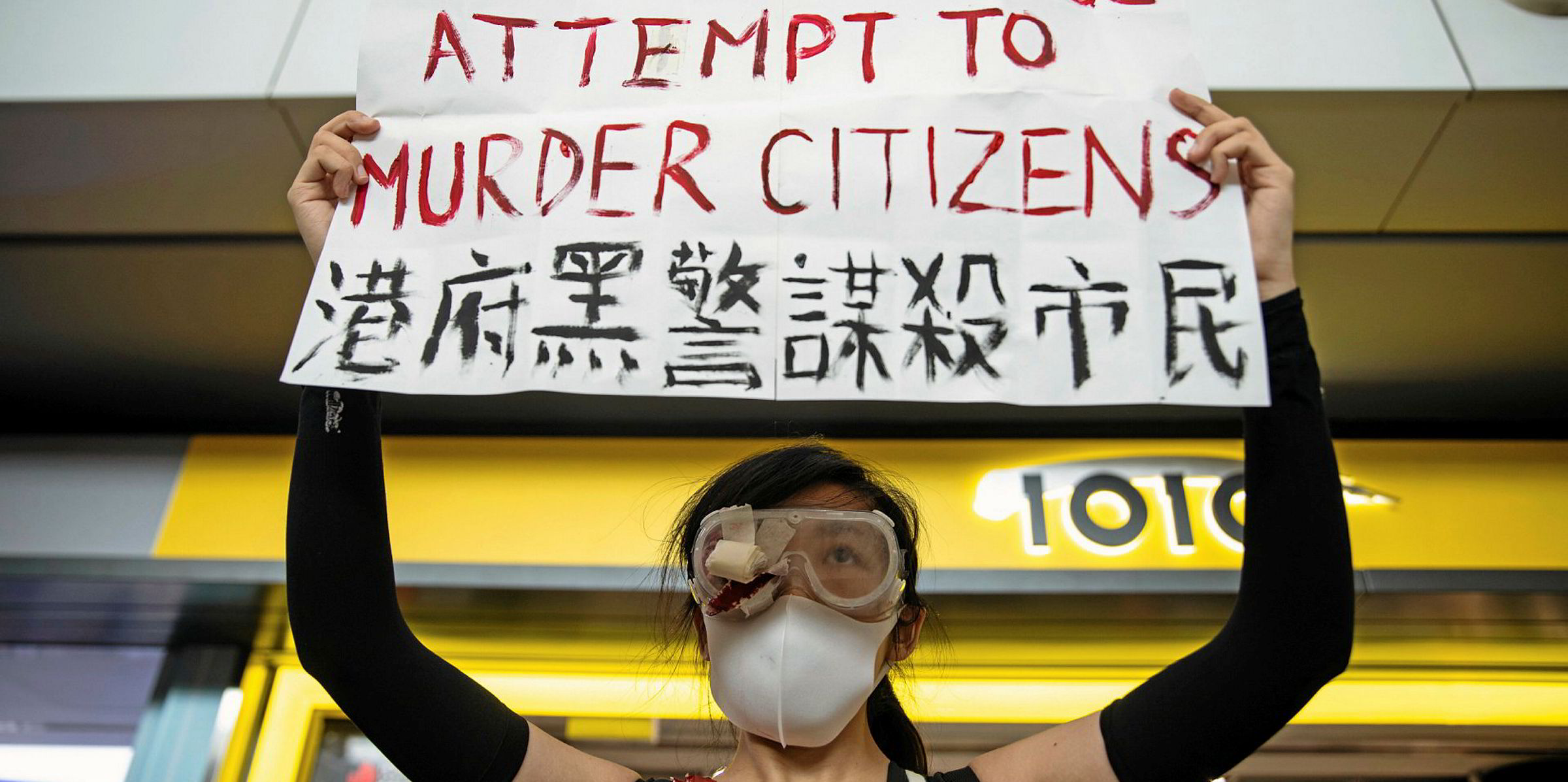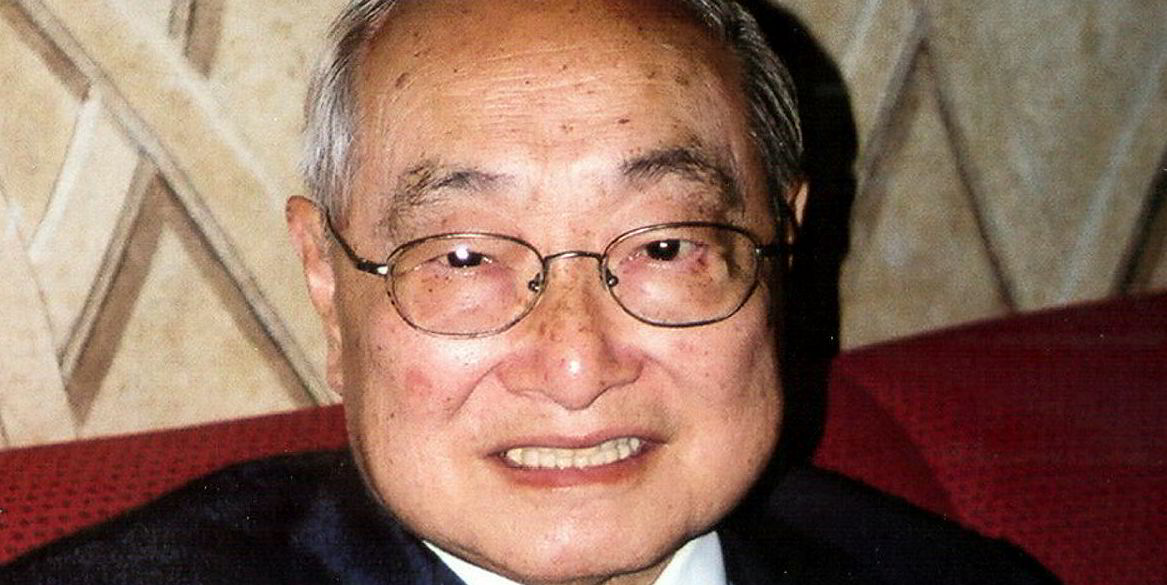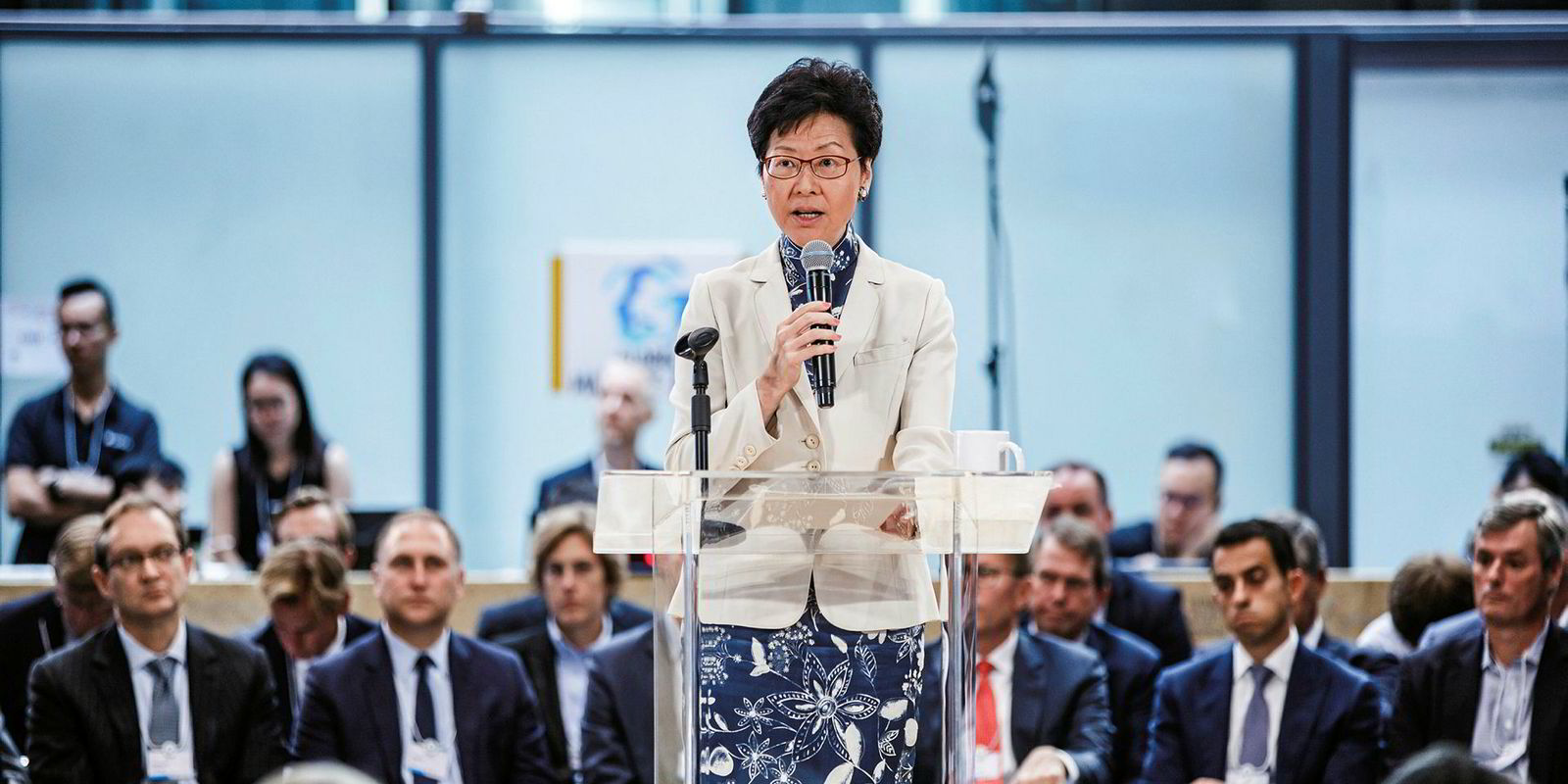Empire-building shipowner Frank Tsao Wen King passed on this week at 94, after a life of many twists and turns, one that tracked the fortunes of Chinese shipping in the modern era.
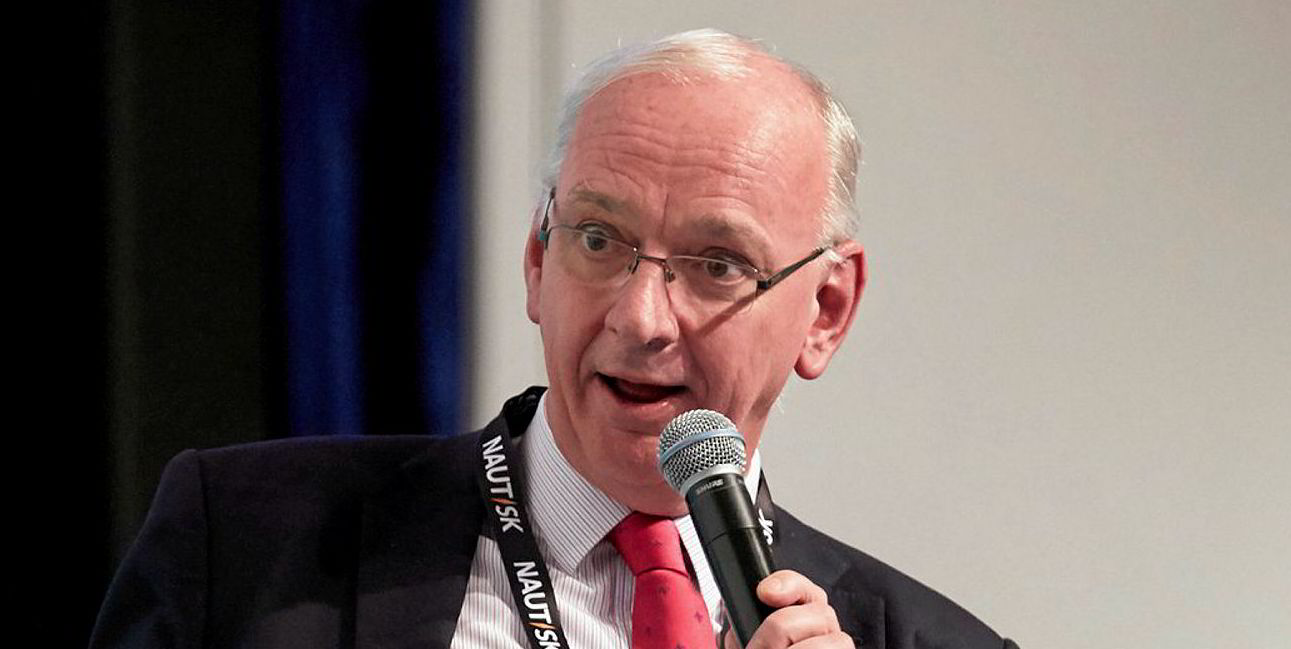
Hong Kong was central to the story of his generation — the one that first took part in the birth of a modern national economy under the Republic of China, only to flee Mao Zedong's revolution and re-establish themselves in Hong Kong, the new centre of East Asian trade and finance.
Tsao's IMC Group, along with the Sohmen-Pao's then World-Wide Shipping Group, was among the first to look beyond Hong Kong around the time of the former colony's return to mainland China in 1997.
In the 22 years since, Hong Kong has managed to retain its shipping sector, and even grown it as the operational headquarters for mainland-controlled ventures.
But it has steadily lost ground to Singapore as a global hub. With each new crisis, from the SARS epidemic and Asian financial crisis to the 2014 Occupy Movement in Hong Kong, the question of its sustainability has returned.
This week, after a summer of increasingly impatient pro-democratic and anti-government protests, protesters shut down Hong Kong's airport — or gave authorities a plausible excuse to do so.
In the streets, both demonstrators and bystanders have faced tear gas and rubber bullets from the Hong Kong Police Force, plus brutal attacks by pro-government triad gangsters and alleged infiltration by provocateurs from the mainland People’s Armed Police.
'Great place to live and work'
But Hong Kong's shipping community has been at pains to underscore that there has been no significant interference with business.
Class surveyors have missed the odd flight to shipyards, office staff have started the day late thanks to clashes that closed down metro stations, and at least one ship sale closure has been done with the smell of tear gas in the air.
Class surveyors have missed the odd flight to shipyards, office staff have started the day late thanks to clashes that closed down metro stations, and at least one ship sale closure has been done with the smell of tear gas in the air
"The news footage being flashed around the world does not reflect the fact that Hong Kong remains one of the safest places in the world to live and do business," said shipowner Tim Huxley of Mandarin Shipping, one of few willing to have his view quoted by name.
Huxley is an eloquent representative of the school that is keeping calm and carrying on.
Asked if he has participated in any protests, he said he had not.
"What I'm most interested and trying to ensure is that Hong Kong continues to weather this storm and remains a great place to live and work," he said.
Huxley, a long-serving officer of the Foreign Correspondents’ Club in Hong Kong even if not a foreign correspondent, feels journalists have given a misleading representation of the situation on the ground.
"Unfortunately, people getting on the bus and going off to work does not make for very good television," he said.
As for those who are not just getting on the bus, he thinks news media outlets are showing the world a distorted image of their actions.
'Peaceful' protests
“The vast majority of protests have been peaceful,” Huxley said. "Considerably more coverage has been given [to tense standoffs] than to a peaceful march of a million people in [the suburb of] Aberdeen.”
But he underscores that civil rights are an important part of what makes Hong Kong a centre for international business.
"Freedom of expression is something that is written into Hong Kong's Basic Law," he said.
Others have less sympathy for the questions of political and civil rights that the demonstrations raise.
"This can't go on. The Hong Kong people obviously have too much freedom," said one mainland Chinese shipping executive.
Not all of his compatriots agree.
“I don’t see any extreme situation coming, with tanks in the street, the People’s Liberation Army stepping in and martial law,” said another mainland shipowning executive with close ties to Hong Kong.
But he would be worried if the current crisis proves to be one phase in a transition that makes Hong Kong more like the mainland.
'Not a Chinese city like Shanghai'
“If Hong Kong gradually becomes another Shanghai, do you think it’s better for Shanghai? I don’t think so,” the mainlander said. “Hong Kong’s competitiveness is because it’s really not a Chinese city like Shanghai.”
The key to Hong Kong's success as a haven for those who resettled there after 1949 was always its paradoxical double relation to China — close enough to serve China financially and commercially, but only able to do so by remaining outside China's political orbit — and most especially by keeping its law courts free of political control.
People with one foot in and one foot out are still in a position to appreciate that.
